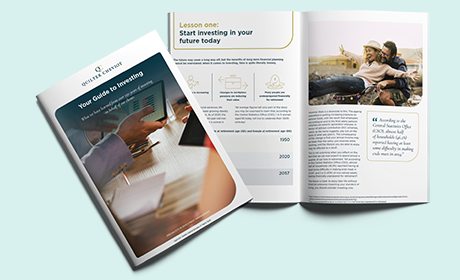There are several types of asset class. Here are some of the most commonly selected:
Alternative investments
An investment that is not one of the traditional asset types (equities, bonds and cash). They are typically investments in assets with a lower correlation to equity or bond markets, such as property, infrastructure, hedge funds, commodities and commodity funds.
Equities
Investment in equities, both UK and global, has long been the cornerstone of most investment portfolios, providing long-term scope for growth of both capital and dividend income. Also known as stocks and shares, equities give the person who holds the share (the shareholder) the right to take advantage of the residual assets of a company and have voting rights. Shareholders will usually receive a dividend. The amount they receive will depend on the profitability of the company. Equity performance can, however, be volatile in the short term.
Cash
Cash is often perceived as a risk-free investment, but it is also a low-return investment. Historically, cash has given a return of close to zero once the impact of inflation is taken into account.
Fixed interest securities (bonds)
There is a wide range of fixed interest securities, from low-risk short-term government bonds to high-risk long-term corporate bonds and high yield bonds. Bond investments pay investors interest at a fixed rate over the term of their investment. Bond investments can be a useful counterbalance for equities because the performance of these two asset classes tends to have a low correlation, meaning that they do not normally move in parallel.
Commercial property
Property is an asset class that has re-established its importance in the 21st-century. It offers the potential for long-term income and capital growth and is normally uncorrelated to equity markets. Investors would normally access this asset class through pooled collective investment vehicles, such as unit trusts and investment trusts.



